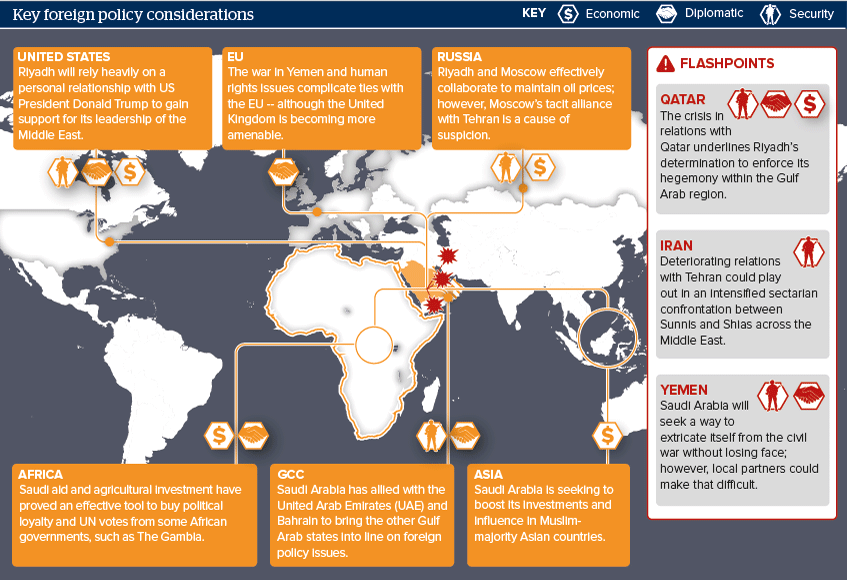Saudi Arabia will seek Gulf leadership against Iran
The ambitious young deputy crown prince, Mohammed bin Salman, is radically shifting the country’s foreign policy stance
Source: Oxford Analytica
Outlook
Mohammed bin Salman will build on the success of US President Trump’s attendance at the Riyadh summit in May, as he aims to become the key US ally in the Arab and Islamic worlds. This relationship will be grounded on common opposition to both Iran and Sunni political Islamist groups, and bolstered by arms sales and infrastructure investment.
However, Washington’s support for Saudi Arabia’s bold initiatives within the region -- including the confrontation with Qatar, a new war of words against Iran and the Yemen intervention -- could be more rhetorical than practical. Without strong US backing, outcomes satisfactory to Riyadh are likely to prove elusive.
Impacts
- If Crown Prince Mohammed bin Nayef succeeds King Salman as planned, foreign policy could revert to older patterns.
- In the longer term, competition for leadership between Riyadh and Abu Dhabi could spark bilateral tensions.
- Another sharp fall in oil prices might force Saudi Arabia to rein in some regional ambitions.
- If the 2015 Iran nuclear deal broke down, the Saudi regional bloc would be exposed to intensified Sunni-Shia confrontation.
See also
- Succession change could spark Saudi policy volatility - Jun 27, 2017
- Arab enemies may impose new sanctions on Qatar - Jun 26, 2017
- Surrender to Riyadh will raise domestic risks for Doha - Jun 7, 2017
- More graphic analysis
